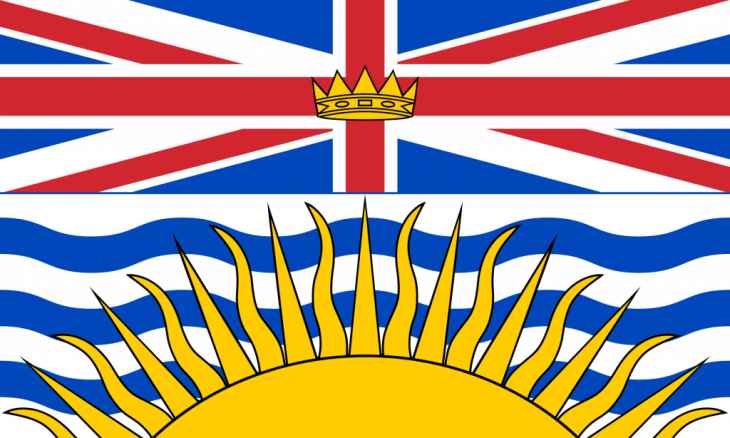
The governments of Canada and British Columbia announced Monday more than $37 million in combined funding for 14 projects to bring high-speed internet access to more than 50 communities across B.C.
As a result of the projects, more than 7,500 households will have access to high-speed internet, including 1,320 Indigenous homes, according to a press release. One project will also provide mobile service to an underserved roadway through Nisga’a Nation lands.
The recipients of the funding are the Nisga’a Lisims Government, Telus, Ktunaxa Nation (FlexiNET), CityWest, and Kaslo infoNet Society.
The communities that will benefit from improved internet speeds include Thetis Island, Blaeberry, Columbia Lake 3 (ʔakisq̓nuk First Nation), Golden, Invermere, Moberly School Road, Nicholson, Parson, Shuswap Band (Kenpesq’t) (Secwépemc Nation), St. Mary’s Lake, Windermere, Savary Island, Mackenzie (rural areas), Nass Camp, New Aiyansh (Gitlax̱t’aamiks Village Government), Nisga’a Village of Gitwinksihlkw, Nisga’a Village of Lax̱galts’ap, Blueberry River First Nations, Chetwynd, Doig River First Nation, Dokie Siding, Inklyuhkinatko 2 (Skuppah), Kanaka Bar, Kleetlekut 22 (Lytton), Nekliptum 1 (Kanaka Bar), Nicomen, Osborn, Siska, Skuppah, Spuzzum, Twidwell Bend, Wabi Hill, Cluculz Lake, Kulkayu (Hartley Bay) No. 4 (Gitga’at First Nation), Mitchell Bay, Sointula, Fort St. James, Nak’azdli Whut’en 1, Burns Lake (rural areas), Tchesinkut Lake, Alert Bay 1 (‘Na̱mgis First Nation), Alert Bay 1A (‘Na̱mgis First Nation), Nimpkish 2 (‘Na̱mgis First Nation), Ainsworth Hot Springs, Argenta, Cooper Creek, Howser, Kaslo, Lardeau, Meadow Creek, Shutty Bench, Johnsons Landing, and Riondel.
Ten of the projects are being co-funded with the province of B.C., while four are not but are still part of the memorandum of understanding between the federal and provincial governments.
The funding is part of an existing $830-million agreement between the two levels of government to connect households in all remaining rural, remote and Indigenous communities throughout B.C. to high-speed internet with the federal objective speeds of at least 50 Mbps download and 10 Mbps upload.
The projects announced Monday build on the federal government’s progress toward ensuring 98 per cent of Canadians have access to high-speed internet by 2026, and 100 per cent by 2030, and to improve mobile connectivity across the country, the press release says.
“By increasing access to high-speed Internet, we are building strong, resilient communities in B.C. where people can thrive. The funding announced today means people in rural and remote areas of the province are able to fully participate in the digital economy and access online resources,” B.C. Minister of Citizens’ Services George Chow said in the release. “We are committed to providing every underserved community with high-speed Internet access by 2027, so everyone can benefit from a stronger, more connected B.C.”
“Today’s announcement sets the stage to bring improved connectivity to more underserved communities across the province. CityWest’s fibre-to-the-home projects will bring these residents and businesses urban-class connectivity, creating equal opportunities for more rural, remote and Indigenous British Columbians,” said Stefan Woloszyn, CEO of CityWest. “We would like to express our thanks to the Province of B.C. and the federal government for their vision on ensuring that these communities are able to unlock their connectivity destiny.”
“This is not just a story about Internet connectivity; this is a story about our ability as a self-governing nation to create partnerships to improve the lives of Nisga’a citizens and advance our economy on Nisga’a Lands,” said Eva Clayton, president of Nisga’a Nation. “Our investments in the Lisims network will enable us to determine our own success and increase the ability of our people, our businesses and our youth to fully participate and thrive in our increasingly digital world.”
“This generous funding acknowledges the crucial role of connectivity in levelling the playing field for rural areas, and we are both excited and grateful for the opportunity,” said Isaac Maxfield, executive director of community non-profit Kaslo infoNet Society (KiN). “Through this investment, KiN is committed to enhancing digital access and ensuring that our community not only stays connected but also moves forward together in today’s increasingly digital world.”
“TELUS is committed to ensuring that all British Columbians have access to reliable, high-speed Internet to thrive in today’s digital world,” said Shazia Zeb Sobani, vice-president of customer network planning at Telus. “We are proud to partner with the Government of Canada to bring our world-leading PureFibre network to more rural and Indigenous communities to ensure everyone here can connect to the people and information that matter most to them. This well-needed gigabit connectivity will enable these communities to participate globally to enable better economic, educational, health and social outcomes.”



